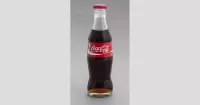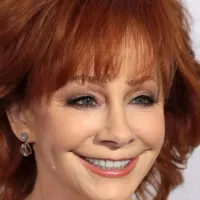KFC, or Kentucky Fried Chicken, is an American fast-food chain famous for its fried chicken. Headquartered in Louisville, Kentucky, it stands as the world's second-largest restaurant chain with over 30,000 locations across 150 countries. As of April 2024, KFC operates as a subsidiary of Yum! Brands, which also owns Pizza Hut and Taco Bell. KFC specializes in fried chicken and chicken sandwiches and has become a global icon in the fast-food industry.
1930: Sanders Takes Over Shell Filling Station
In 1930, Harland Sanders took over a Shell filling station outside North Corbin, Kentucky, where he first served fried chicken and other dishes to travelers.
1937: Expansion of Sanders Court & Café
In 1937, Sanders expanded his restaurant to 142 seats and added a motel across the street, naming it Sanders Court & Café.
1939: Sanders Modifies Pressure Cooker
In 1939, Sanders modified a commercial pressure cooker into a pressure fryer to reduce chicken preparation time while maintaining quality.
July 1940: Finalization of the "Original Recipe"
In July 1940, Sanders finalized his "Original Recipe" of 11 herbs and spices, a trade secret that remains a key part of KFC's identity.
1950: Sanders Becomes "the Colonel"
In 1950, Sanders was recommissioned as a Kentucky Colonel and began dressing the part, referring to himself as "the Colonel."
1952: Sanders Franchises His Recipe
In 1952, Sanders franchised his chicken recipe to Pete Harman in South Salt Lake, Utah, establishing a franchise model.
1952: First KFC Logo Introduced
In 1952, the first KFC logo was introduced, featuring a "Kentucky Fried Chicken" typeface and an image of Colonel Sanders.
1952: First KFC Franchise Opens
In 1952, the first Kentucky Fried Chicken franchise restaurant opened in South Salt Lake, Utah, marking the beginning of KFC's expansion through franchising.
1955: Sanders Sells Restaurant and Focuses on Franchising
In 1955, with the new Interstate 75 bypassing his properties, Sanders sold his restaurant and traveled the US to franchise his recipe to restaurant owners.
1956: Slogan "North America's Hospitality Dish"
From 1956, KFC used the slogan "North America's Hospitality Dish" and also started using the "finger lickin' good" slogan which went on to become one of the best-known slogans of the 20th century.
1957: Kentucky Fried Chicken Name and Slogan Introduced
In 1957, Don Anderson coined the name "Kentucky Fried Chicken", and Pete Harman trademarked the slogan "It's finger lickin' good", which became the company slogan.
1957: Introduction of the "bucket"
In 1957, Pete Harman introduced the 'bucket', a cardboard container containing 14 pieces of chicken, five bread rolls and a pint of gravy, which has become a signature feature of the chain.
1962: Bucket Sign Created
In 1962, Dave Thomas transformed Colonel Sanders' bucket into a rotating sign for American KFC outlets.
1963: KFC Becomes Largest Fast Food Operation
By 1963, KFC had grown to 600 restaurants, becoming the largest fast food operation in the United States and popularizing chicken in the fast food industry.
1964: Kentucky Fried Chicken Expands to Europe
In 1964 Kentucky Fried Chicken planned to expand franchise opportunities beyond the Atlantic.
1964: Sanders Sells KFC
In 1964, Harland Sanders, overwhelmed by the company's rapid expansion, sold KFC to a group of investors led by John Y. Brown Jr. and Jack C. Massey.
May 1, 1965: First British KFC Opens
On May 1, 1965, the first British KFC eatery opened in Preston, Lancashire, marking KFC's entry into the European market.
1966: Nationwide Advertising on US Television
In 1966, after being sold by Sanders, KFC began nationwide advertising on US television with a US$4 million budget.
1969: Hiring of Leo Burnett Agency
In 1969, KFC hired its first national advertising agency, Leo Burnett.
1969: Development of the Collectramatic Fryer
In 1969, Winston L. Shelton developed the "Collectramatic" pressurized fryer to address KFC's challenges in quickly frying chicken to meet customer demand. This fryer offered precision time and temperature controls and self-filtered the cooking oil.
1970: KFC Reaches 3,000 Outlets
By 1970, the KFC chain had reached 3,000 outlets in 48 countries.
1970: Franchisees Use of Older Fryer Disapproval
From 1970 onwards, despite Colonel Sanders' support for the Collectramatic fryer, John Y. Brown Jr. tacitly approved franchisees' exclusive use of the older L S Hartzog fryer, fearing breakdowns and warning against Collectramatic use.
1970: KFC Franchises in Ireland
In 1970, Pat Grace franchised the KFC brand in Ireland and opened his first restaurant in Phibsboro shopping center in Dublin.
July 1971: Brown Sells KFC to Heublein
In July 1971, John Y. Brown Jr. sold KFC to Heublein for US$285 million.
1972: "Get a Bucket of Chicken, Have a Barrel of Fun" Jingle
In 1972, Leo Burnett created the "Get a bucket of chicken, have a barrel of fun" jingle for KFC, performed by Barry Manilow.
1972: Collectramatic Approved After Heublein Purchase
In 1972, after Heublein purchased KFC, acquired Hartzog, and nullified the contract, the Collectramatic became an approved pressure fryer for KFC.
1976: KFC Becomes One of the Largest Advertisers in the US
By 1976, KFC had become one of the largest advertisers in the US.
1980: Death of Colonel Sanders
Colonel Sanders, a key component of KFC advertising, passed away in 1980.
1982: Heublein Acquired by R. J. Reynolds
In 1982, Heublein, the owner of KFC, was acquired by the tobacco giant R. J. Reynolds.
July 1986: Reynolds Sells KFC to PepsiCo
In July 1986, R. J. Reynolds announced the sale of KFC to PepsiCo for $850 million.
November 1987: KFC Enters Chinese Market
In November 1987, KFC entered the Chinese market, opening its first outlet in Beijing.
1987: KFC Opens in China
In 1987, KFC became the first Western restaurant chain to open in China, marking a significant step in its international expansion. China is now the company's single largest market.
1990: Launch of Spicy "Hot Wings"
In 1990, KFC launched spicy "Hot Wings".
1991: Official Adoption of KFC Name
In 1991, the KFC name was officially adopted, as an attempt to distance the chain from the unhealthy connotations of "fried".
1992: Launch of Popcorn Chicken
In 1992, KFC launched popcorn chicken.
1993: Launch of the "Zinger"
In 1993, KFC launched the "Zinger", a spicy chicken fillet sandwich, internationally.
1994: KFC Statistics
By 1994 KFC had 5,149 outlets in the US and 9,407 overall, with over 100,000 employees.
August 1997: PepsiCo Spins Off Restaurants Division
In August 1997, PepsiCo spun off its restaurants division as Tricon Global Restaurants, valued at US$4.5 billion.
1999: Secret Recipe Notes Found
In 1999, a couple who bought Colonel Sanders' former house found notes believed to be the secret KFC recipe, leading to potential legal action.
2001: Lawsuit Dropped Over Recipe Notes
In early 2001, KFC dropped a lawsuit against a couple who found scribbled notes purported to be the secret recipe, claiming the notes were "nowhere close" to the original recipe.
May 2002: Tricon Renamed Yum! Brands
In May 2002, Tricon Global Restaurants was renamed Yum! Brands.
2002: Criticism of Fast Food
In 2002, Eric Schlosser's book Fast Food Nation reflected concerns about fast food's animal welfare record, links to obesity, and environmental impact.
2003: PETA Protests Against KFC
Since 2003, PETA has protested KFC's choice of poultry suppliers worldwide, except for KFC Canada, which agreed to use "animal-friendly" suppliers.
2004: Super Size Me Film Release
In 2004, Morgan Spurlock's film Super Size Me reflected concerns about fast food's animal welfare record, links to obesity, and environmental impact.
2006: Greenpeace Accusations of Soya Sourcing
In 2006, Greenpeace accused KFC Europe of sourcing soya beans for chicken feed from Cargill, accused of clearing Amazon rainforest.
2006: "Finger Lickin' Good" Trademark Expired
In 2006, the trademark for the slogan "finger lickin' good" expired in the US.
2008: Yum! Monitoring Suppliers
In 2008, Yum! stated it has the responsibility to influence the treatment of animals supplied to them and is monitoring its suppliers.
2009: Launch of Krusher/Krushem Range
In 2009, KFC launched the Krusher/Krushem range of frozen beverages, available in over 2,000 outlets.
2010: Racism Accusations Over Commercial
In 2010, KFC Australia faced backlash for a commercial in the US that was perceived as perpetuating racist stereotypes.
March 31, 2011: Priszm Bankruptcy
On March 31, 2011, Priszm, the owner of KFC in Canada, filed for bankruptcy protection in Ontario and British Columbia.
May 2012: Greenpeace Accusations on Packaging
In May 2012, Greenpeace accused KFC of sourcing paper pulp for its food packaging from Indonesian rainforest wood.
December 2012: Supplier Scandal in China
In December 2012, KFC in China was criticized for suppliers using growth hormones and excessive antibiotics on poultry, violating Chinese law.
2012: International Rollout of KFC AM Breakfast Menu
In 2012, KFC began rolling out the "KFC AM" breakfast menu internationally, featuring items such as pancakes, waffles, porridge, and fried chicken.
February 2013: Yum! CEO Admits Impact of Scandal
In February 2013, Yum! CEO David Novak acknowledged that the supplier scandal in China had a longer-lasting and more significant impact than anticipated.
March 2013: Sales Rebound but Decline Expected
In March 2013, Yum! reported a sales rebound in February, but anticipated a decline in same-store sales of 20% in the first quarter due to lower sales in December and January.
2013: Transition to Henny Penny Fryers
From 2013 onwards, KFC began transitioning from Collectramatic cookers to pressure fryers produced by Henny Penny, including the 'Velocity' series with enhanced features.
2013: KFC Sales
In 2013, KFC had sales of $23 billion.
May 2015: New Advertising Campaign Launched
In May 2015, KFC launched a new series of US advertisements featuring Darrell Hammond as Colonel Sanders, as part of a larger initiative to revamp the brand.
August 2016: Recipe Test Claims "Indistinguishable" Taste
In August 2016, Chicago Tribune staffers tested a recipe claimed to be the original KFC fried chicken recipe and, with MSG, produced fried chicken tasting "indistinguishable" from KFC's.
2017: Fine for Scalding Incident
In 2017, KFC was fined £950,000 after two UK workers were scalded by boiling hot gravy due to safety failures.
January 2018: Reba McEntire Plays Colonel Sanders
In January 2018, Reba McEntire became the first woman to play Colonel Sanders in KFC advertisements.
February 2018: Chicken Shortage in the UK
In February 2018, KFC experienced a chicken shortage in the UK due to logistics mismanagement by DHL, leading to temporary restaurant closures and a public apology.
August 27, 2019: KFC Tests Meatless Options in Atlanta
On August 27, 2019, KFC tested meatless boneless wings and nuggets in Atlanta, Georgia.
2019: Better Chicken Commitment Announced
In 2019, KFC announced that it would meet the Better Chicken Commitment, an animal welfare pledge to improve conditions for chickens.
November 2021: Opening of First Restaurant in Finland
In November 2021, the first KFC restaurant in Finland opened, accompanied by vegan activist protests and concerns over broiler procurement from Poland due to salmonella risks.
2021: Andrea Zahumensky on Brand Assets
In 2021, before leaving as CEO, Andrea Zahumensky highlighted the bucket, three stripes, and full name Kentucky Fried Chicken as key brand assets.
November 9, 2022: Controversial Kristallnacht Promotion
On November 9, 2022, KFC Germany issued an announcement inviting its German audience to celebrate Kristallnacht with "Cheesy Chicken", followed by an apology for the "error in our system".
2022: Conditions of Birds "Misleading"
In 2022, after a promotional video depicted birds with a good quality of life, animal rights activists found "severe overcrowding" and "lame and dead birds". KFC's actions were branded "misleading".
February 2023: Menu Changes in KFC Australia
In February 2023, KFC in Australia removed several items from their menu, including wings, popcorn chicken, Nashville hot sauce, and strawberry lemonade.
2023: Beer and New Fries Introduced
In 2023, KFC locations in Eastern Europe and Portugal offered beer in addition to soft drinks. Additionally, KFC branches in the UK and Ireland introduced new 'signature fries' (fries coated in herbs and spice) in an attempt to improve the taste of the fries.
April 2024: KFC Global Presence
As of April 2024, KFC has over 30,000 locations globally in 150 countries, making it the world's second-largest restaurant chain after McDonald's.
May 2024: Outlet Closure and Attacks Reported
In May 2024, the closure of a KFC outlet in Malaysia was reported due to the ongoing Israeli–Palestinian conflict, along with attacks on two outlets in Baghdad, Iraq.
September 2024: Announcement on Better Chicken Commitment
In September 2024, KFC announced that it would not meet the Better Chicken Commitment, an animal welfare pledge made in 2019, citing that as of 2024 only 1% of KFC's chickens were from slower-growing breeds which the pledge aimed for by 2026.
June 2025: KFC Denmark Restaurants Scandal
In June 2025, a TV show revealed that KFC restaurants in Denmark were falsifying use-by dates on raw chicken. The national food authority launched simultaneous inspection raids on all 11 restaurants. Issues found included mouldy residue, reusing breading mix continuously, thawing procedures allowing chicken to be served up to 4 days after defrosting, and suspect messages about deceiving inspectors. Formal and legal issues were also found, such as dirty waste buckets near fresh food and incomplete paperwork.
2025: Headquarters Move to Plano, Texas
Yum! Brands plans to move the KFC headquarters to Plano, Texas, in 2025.
2026: Deadline for Animal Welfare Pledge
In 2026, KFC had committed to adopt slower-growing breeds as part of the Better Chicken Commitment, but only 1% of KFC's chickens were from such breeds as of 2024.
Mentioned in this timeline

Coca-Cola is a globally recognized cola soft drink produced by...
Ukraine is a large country in Eastern Europe second in...
McDonald's is an American multinational fast food chain As of...

Reba McEntire known as The Queen of Country is a...
Germany officially the Federal Republic of Germany is a Western...
China officially the People's Republic of China PRC is an...
Trending
11 months ago Latvia Imposes Entry Ban on Citizens from Russia and Belarus Amid Tensions
John Jack Bouvier Kennedy Schlossberg is an American writer and political commentator As the only grandson of President John F...
Leverkusen is a city situated in North Rhine-Westphalia Germany located on the eastern bank of the Rhine River It shares...

11 months ago Amber Glenn shines at Figure Skating World Championships, redefining power on ice.
3 months ago Viktor Gyökeres scores for Arsenal, stunning fans with an unexpected goal and celebration.
9 months ago Hilary Knight Announces 2026 Milan Olympics Will Be Her Last Olympic Games
Popular

Kid Rock born Robert James Ritchie is an American musician...

Melania Trump a Slovenian-American former model has served as First...

XXXTentacion born Jahseh Dwayne Ricardo Onfroy was a controversial yet...
The Winter Olympic Games a major international multi-sport event held...

Thomas Douglas Homan is an American law enforcement officer who...

Instagram is a photo and video-sharing social networking service owned...

